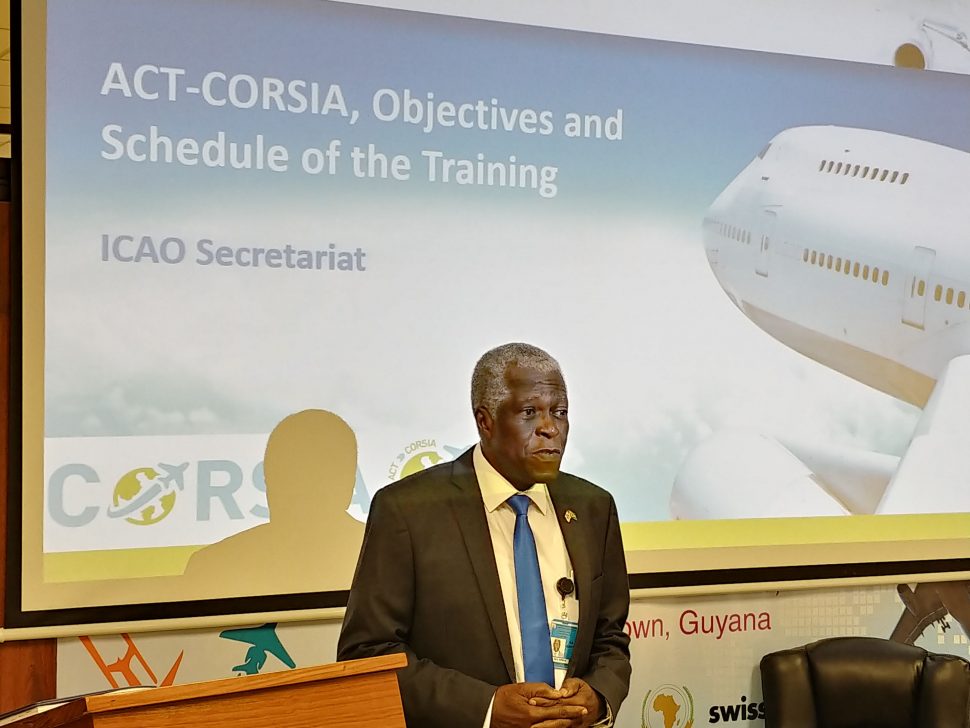The Guyana Civil Aviation Authority (GCAA) has started preparatory works for the implementation of the Pilot Phase of the Carbon Offsetting and Reduction Scheme for International Aviation (CORSIA).
It hosted a two-day capacity building workshop for the aviation industry, on April 15 to 16, 2019, at the Authority’s Head Office, according to a release from the GCAA.
Speaking at the opening, Director General of the GCAA, Egbert Field, said that Guyana has made a bold step by participating in the programme.
“You are a part of what is considered an important occasion, where Guyana is among the many countries that will be able to share their experiences from this programme and help shape the future of aviation globally” Field said.
He also reminded the participants that the initiative is aligned with the Government’s Green State Development Strategy, contributing to Guyana’s national goals and the International Civil Avia-tion Organisation (ICAO) goals simultaneously.
Director of Air Transport and Economic Regulations at the GCAA, Saheed Sulaman, noted that Guyana is among the first set of countries to have develop regulations for the CORSIA programme.
CORSIA, the release said, is a market-based measure (MBM) adopted by ICAO as part of a broad set of measures to help ICAO decrease the carbon footprint of international civil aviation.
Examples of MBMs include levies, emissions trading systems, and carbon offsetting – CORSIA will take the form of carbon offsetting.
CORSIA will have three implementation phases: the Pilot Phase from 2021-2023, the First Phase from 2024-2026, and the Second Phase from 2027-2035.
The release said that airlines engaged in international operations will develop and furnish an Emissions Monitoring Plan to the State for approval. After approval, the operator will be required to monitor their emissions throughout the year in line with the Plan. Their subsequent report to the State will be in the form of an Annual Emissions Report. Guyana will be required to provide a summarized State Report on total emissions to ICAO.
Agencies that benefitted from the training include the Environmental Protection Agency, the Office for Climate Change, the Cheddi Jagan International Airport, the Caribbean Safety and Security Oversight System and domestic airline operators.






